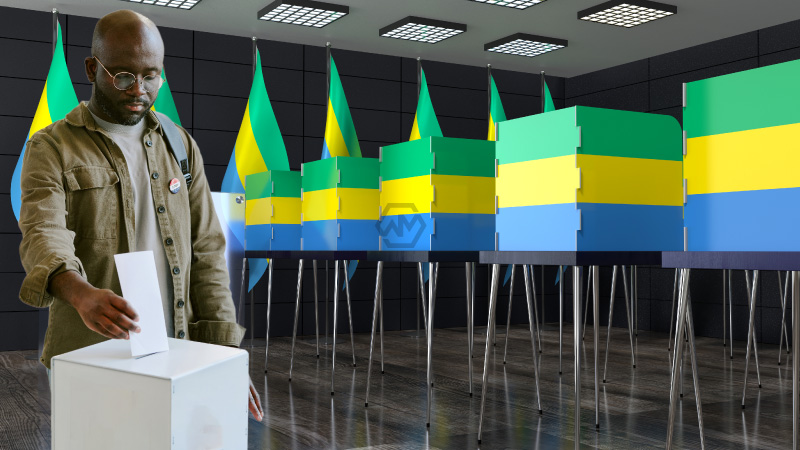- Gen. Brice Oligui Nguema leads the race after ousting Ali Bongo in a 2023 coup.
- Over 920,000 registered voters cast ballots in a crucial national transition.
- Eight candidates compete, ending over 50 years of Bongo family rule.
For the first time in decades, Gabon held a presidential election without a Bongo on the ballot. The vote comes 19 months after Gen. Brice Oligui Nguema led a coup against President Ali Bongo Ondimba. This act ended a dynastic era.
Despite the country’s oil riches, a third of Gabon’s 2.3 million people live in poverty. Many hope the election will bring change, yet skepticism remains high.
Gabon’s Post-Coup Election Tests Promises of Civilian Rule
Gen. Brice Oligui Nguema came to power promising to restore democratic order. This followed after removing Ali Bongo in a bloodless 2023 coup. Now, Nguema seeks a seven-year presidential term. Some view this as an attempt to solidify military control under civilian guise.
The military-led government amended the constitution, enabling Oligui’s candidacy. Though he vowed credible elections, observers note his institutional advantage. Some question whether meaningful political competition is possible under such conditions.
Opposition voices remain, including former Bongo allies and new challengers. Among them are Alain Simplice Boungouères and Stéphane Germain Iloko. The inclusion of Gninga Chaning Zenaba as the sole female candidate also signals a symbolic shift. However, her electoral chances are slim.
This vote is more than just a leadership transition—it’s a referendum on Gabon’s political identity. The people are deciding whether a new chapter begins or if old power dynamics simply take a new form.
As Gabon casts its votes, the country stands at a crossroads between promised reform and the realities of military-influenced governance. The world watches closely.
“We Build Together.” — Gen. Brice Oligui Nguema’s campaign slogan encapsulates both his bid for unity and the contested narrative of a people seeking real civilian leadership.



